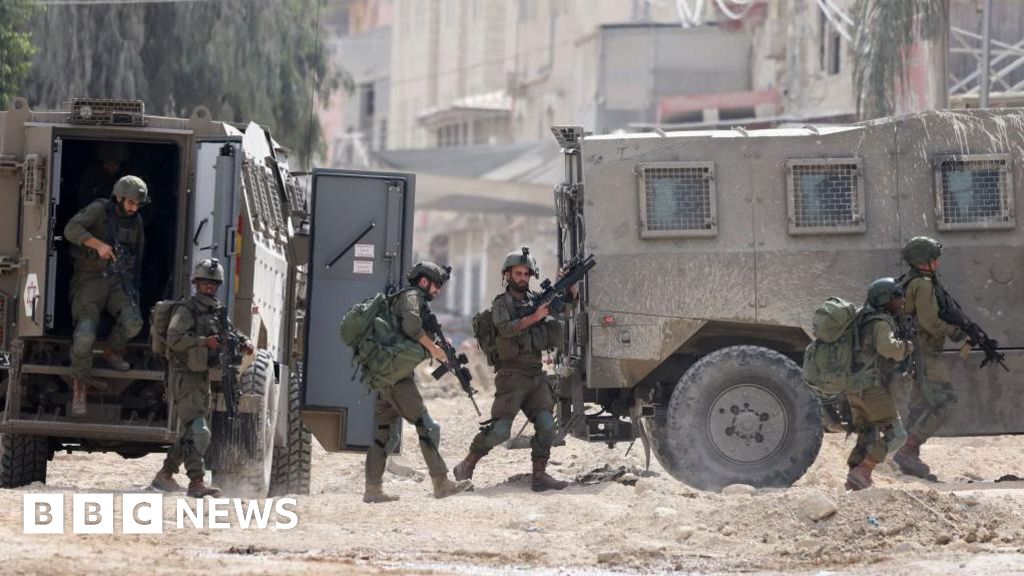At least a dozen Palestinians have been killed after Israeli forces launched a massive attack in the occupied West Bank.
The Israel Defense Forces (IDF) said on Wednesday it was beginning “anti-terrorism operations”. On Thursday, 12 people were reported dead in the cities of Jenin and Tulkarem.
The Palestinian Health Ministry reported a higher death toll, saying 16 people had died since Wednesday morning.
The United Nations has called on Israel to scale down ongoing attacks, and the Palestinian mission to the United Nations has condemned them.
U.N. Secretary-General Antonio Guterres called on Israel to immediately halt its actions, saying it “exacerbated an already explosive situation.”
He urged the Israeli military to “exercise maximum restraint and use lethal force only when absolutely unavoidable.”
The Israel Defense Forces said five people were killed after “an exchange of gunfire” with militants “hiding in a mosque” in Tulkarem. Seven people are said to have died in Jenin.
Mohammed Jaber, also known as Abu Shujaa, was among those killed, according to the Israeli military. He is reportedly the local leader of the Tulkarem brigade, which is backed by the Palestinian Islamic Jihad militant group.
The IDF says Jaber has been linked to numerous attacks against Israelis and is planning more.
In a statement posted on Telegram, the Tulkarem Brigade said its fighters ambushed an Israeli infantry unit “in response to the assassination of our commander,” without naming him.
The Israel Defense Forces said it had arrested 10 wanted suspects and seized explosives and weapons in raids in Tulkarm and Jenin.
Permanent Mission of Palestine to the United Nations Condemned the attack in a letter On Thursday, Israeli forces “invaded houses, deliberately targeted civilians, destroyed vital infrastructure and even besieged the area’s four main hospitals”.
In Jenin, military jeeps parked around the government hospital stopped ambulances and conducted checks while security forces continued operations in the city’s refugee camps.
The camp is a base for armed groups and home to unarmed civilians and has been the scene of many fierce gun battles in the past.
Israeli troops blocked access to the camp and the Palestinian telephone network was paralyzed.
It was the second day of what Israeli media said could be a multi-day operation in the West Bank.
It is one of the largest such operations in the West Bank since the second Palestinian intifada, or uprising, two decades ago.
Israel’s ambassador to the United Nations, Danny Danon, said the operation had a “clear goal: to prevent Iranian proxy terrorism from harming Israeli civilians.”
In recent days, Israeli politicians have accused Iran, which backs Hamas and the Palestinian Islamic Jihad group, of trying to smuggle explosive devices to attack Israel.
Danon said in a post on X that Israel “cannot stand by and wait for the explosion of buses and cafes in the city center.”
Violence has surged in the West Bank since Hamas’s Oct. 7 attack on Israel and the subsequent war in Gaza.
EU foreign policy chief Josep Borrell said Israel’s actions in the West Bank “must not constitute a prerequisite for a war extending from Gaza”.
He said he was starting to ask EU member states whether to impose sanctions on “some Israeli ministers.”
He accused the ministers, whom he did not name, of “sending unacceptable messages of hate to the Palestinians and making proposals that clearly violate international law”.

